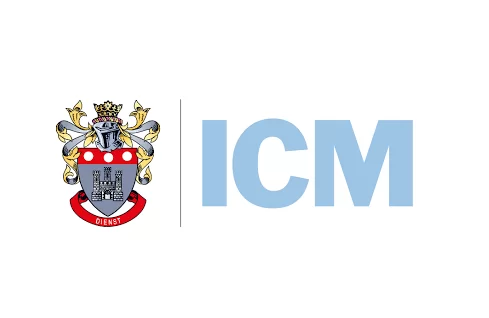Do you know you can Pass ICM UK Series Exam the Easy Way? Do you know the tips that can put you on the pass to success? If you want to know, keep reading.
Imagine sitting for the ICM UK Series Exam and knowing you’re prepared to ace it, calm and confident as you watch others fret around you. That’s the power of effective preparation. Passing an exam like the ICM (Institute of Commercial Management) UK Series doesn’t happen by chance; it takes strategic effort, smart study methods, and the right mindset. As an experienced examiner, I’ve seen students with potential fall short due to poor preparation while others, who prepared methodically, soared through with impressive results. So, if you’re serious about standing out and achieving a top grade, keep reading—because this guide will equip you with strategies that have been proven to work time and again.
Follow me through this post as I share with you the best tips as a lecturer and instrcutor for ICM UK examination. My tips would help you excel if applied religously. Ti will help you increase your chances and Pass ICM UK Series Exam the Easy Way.
1. Understand the Exam Structure and What It Demands
The ICM UK Series Exam, like many standardized exams, follows a specific structure and set of standards. Many students dive into study mode without first familiarizing themselves with the exam’s demands, which can make a difference between average and outstanding performance. Here’s what you need to know:
- Format: Get a clear understanding of the format (e.g., multiple-choice, essay, case studies) and allocate your study time based on this knowledge.
- Sections and Weightage: Different sections often carry different weight. Spend more time mastering the high-weight areas.
- Past Papers and Marking Schemes: Review past papers and marking schemes, which will reveal question patterns and the specific answers examiners look for.
Understanding these aspects can help you shape your study plan effectively, allowing you to focus on what truly matters for acing the exam.
2. Create a Realistic Study Plan – and Stick to It!
Planning is crucial. Without a clear plan, you’re more likely to end up overwhelmed and underprepared. A good study plan should be realistic, sustainable, and, above all, tailored to your strengths and weaknesses.
- Set Achievable Goals: Break down your syllabus into manageable parts and set daily or weekly goals. This will make the syllabus feel less daunting.
- Prioritize Based on Weaknesses: Focus on areas where you struggle the most first, then move to topics where you feel more confident.
- Balance Study with Breaks: Don’t cram! Short, consistent study sessions are far more effective than one intense, long session. Schedule regular breaks to avoid burnout.
Following a study plan requires discipline, but with consistency, the benefits are immense. This disciplined approach is a hallmark of students who consistently perform well in exams.
3. Embrace Active Learning Techniques for Better Retention
Passive reading or mere note-taking rarely leads to high retention. Instead, embrace active learning techniques that allow you to engage with the material actively.
- Summarize in Your Own Words: Rewrite complex concepts in simple terms. This forces you to process the material deeply, improving understanding.
- Teach What You’ve Learned: Teaching others or even yourself aloud is a powerful way to reinforce your learning.
- Practice, Practice, Practice: Practicing with mock exams, past papers, and question banks will give you confidence and refine your exam-taking skills.
Active learning creates stronger neural connections, making information easier to recall when you need it most—during the exam.
4. Master Time Management with Timed Practice Sessions
One of the most significant hurdles in the ICM UK Series Exam is managing time effectively. Time pressure can lead to careless mistakes, skipped questions, or rushed responses, all of which can impact your score negatively.
- Timed Practice Exams: Simulate the actual exam environment by timing your practice sessions. This helps you gauge how much time to allocate for each question type.
- Prioritize High-Value Questions: If your exam has a mix of question types, tackle high-value or easier questions first. This ensures you don’t miss out on marks for questions you know well.
- Train to Handle Pressure: Practicing under timed conditions helps you get comfortable with exam pressure, so you can remain calm and focused during the actual test.
Effective time management can be a deciding factor in your performance, so make it a core part of your preparation.
5. Develop Analytical and Critical Thinking Skills
Examiners often seek to evaluate your analytical and critical thinking skills, not just rote memorization. The ICM UK Series Exam may include case studies, complex scenarios, or application questions that test these abilities.
- Analyze Case Studies: Practice breaking down case studies and identifying the underlying issues. Develop a structured approach to solve problems, and practice explaining your rationale.
- Practice Application Questions: Learn to apply theoretical knowledge in practical contexts. This can mean understanding concepts well enough to use them in real-world examples.
- Use “Why” Questions: For every answer, challenge yourself with “why” questions. This helps deepen your understanding and strengthens your ability to think critically.
Students who excel at analyzing and applying knowledge stand out. These skills aren’t just valuable for the exam—they’ll serve you well in your career.
6. Revise Strategically Using the Feynman Technique
Revision is where many students go wrong. They tend to re-read or lightly review notes without truly testing their understanding. The Feynman Technique is an effective revision method that involves explaining a concept in simple terms, as if teaching someone else.
- Explain and Simplify: Choose a topic and explain it as if you’re teaching someone with no background in the subject. This will quickly reveal any gaps in your understanding.
- Fill Knowledge Gaps: When you get stuck, revisit your study materials to clarify your understanding.
- Practice and Iterate: Repeat this process until you can explain the topic smoothly and thoroughly.
By using the Feynman Technique, you ensure you truly understand the material, allowing you to answer exam questions confidently.
7. Take Care of Your Physical and Mental Wellbeing
Exams can be mentally exhausting, and burnout is a real issue. Your body and mind need to be in peak condition for you to perform at your best.
- Get Adequate Sleep: Aim for 7-8 hours of quality sleep. Lack of sleep can impair concentration, memory, and decision-making skills.
- Eat Balanced Meals: Fuel your brain with foods rich in omega-3 fatty acids, antioxidants, and vitamins. Avoid excessive caffeine or junk food.
- Exercise Regularly: Physical activity increases blood flow to the brain, reducing stress and enhancing cognitive performance.
Taking care of your health isn’t just about feeling good; it’s also about maximizing your brain’s ability to learn, retain information, and perform well under stress.
8. Practice Mindfulness and Visualization Techniques
Anxiety can be a major barrier to exam success. Learning to manage your stress and maintain focus is a game-changer.
- Visualization Exercises: Spend a few minutes each day visualizing yourself sitting for the exam, confident and capable. Imagine how it feels to answer each question with ease.
- Mindful Breathing: Practicing mindfulness and controlled breathing can help calm nerves and improve focus. Try deep-breathing exercises before study sessions or the exam itself.
- Positive Affirmations: Train your mind to stay positive by using affirmations like, “I am prepared and capable of succeeding.”
Developing mental resilience through these techniques will help you stay calm and focused, which is crucial for high-stakes exams.
READ: 2024 School Placement Site To Go Live Soon :What We See That You Don’t See
9. Review Your Answers Carefully
During the exam, reviewing your answers can be just as important as answering the questions themselves. Many students make careless mistakes that could easily be avoided with a quick review.
- Double-Check Key Calculations: If your exam includes calculations, double-check each one to catch minor errors.
- Look Out for Common Mistakes: Keep an eye out for missing units, overlooked questions, and misinterpretations of prompts.
- Ensure Clarity and Conciseness: Especially for essay questions, make sure your answers are clear, concise, and directly address the question.
Reviewing with a sharp eye can add several points to your score, so don’t skip this step in a rush to finish.
10. Post-Exam Reflection for Continuous Improvement
Once the exam is over, take some time to reflect on your performance. This is a crucial step for continuous improvement and preparation for future exams.
- Identify Strengths and Weaknesses: Reflect on what went well and where you struggled. This can guide your future study efforts.
- Seek Feedback: If possible, get feedback from teachers or mentors on your performance.
- Adjust Your Strategies: Use the insights gained from your reflection to tweak your study plan and methods for the next exam.
Continuous improvement is key to long-term success, and post-exam reflection is a valuable opportunity for growth.
Passing the ICM UK Series Exam with flying colors is entirely possible if you approach your preparation strategically. With an understanding of the exam structure, a solid study plan, and the use of active learning, critical thinking, and well-rounded revision techniques, you can set yourself up for success. Remember, success in exams is not just about working hard—it’s about working smart. Implement these strategies, believe in your capabilities, and visualize your success. Then, when you walk into that exam hall, you’ll be prepared to tackle any question with confidence and achieve the brilliant results you deserve. Good luck!








Leave a Reply